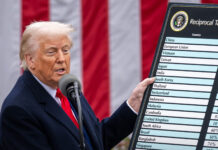PESHAWAR: Like the rest of the country, Khyber Pakhtunkhwa (KP) has witnessed a 50 per cent drop in business activities due to inflation and rising prices of basic commodities.
KP Traders Union President Mujeeb-ur-Rehman told Profit that the rise in prices of food prices, petroleum products and coronavirus has led to low purchasing power of the common man. “The sharp surge in inflation hasn’t only affected the general public but also traders.”
The continuous increase petroleum products have played major role in increasing the prices of essential commodities which have surged 50 to 60 per cent; people are not coming out for Eid shopping either.
Mujeeb said that the business community is facing difficulties due to the drop in sales during Eid season this year whereas there is no hope of relief in electricity bills.
He said the government should announce a comprehensive package for small traders in Khyber Pakhtunkhwa who suffered terrorism in the last three decades and were unlucky enough to suffer a pandemic right when they expected things to get better.
On the other hand, Irshad Ali, a government employee from Peshawar, said that the current inflation has not only affected ordinary workers but also government employees.
“The current salaries can hardly fulfill the basic requirements of our households let alone shopping for Eid.”
























